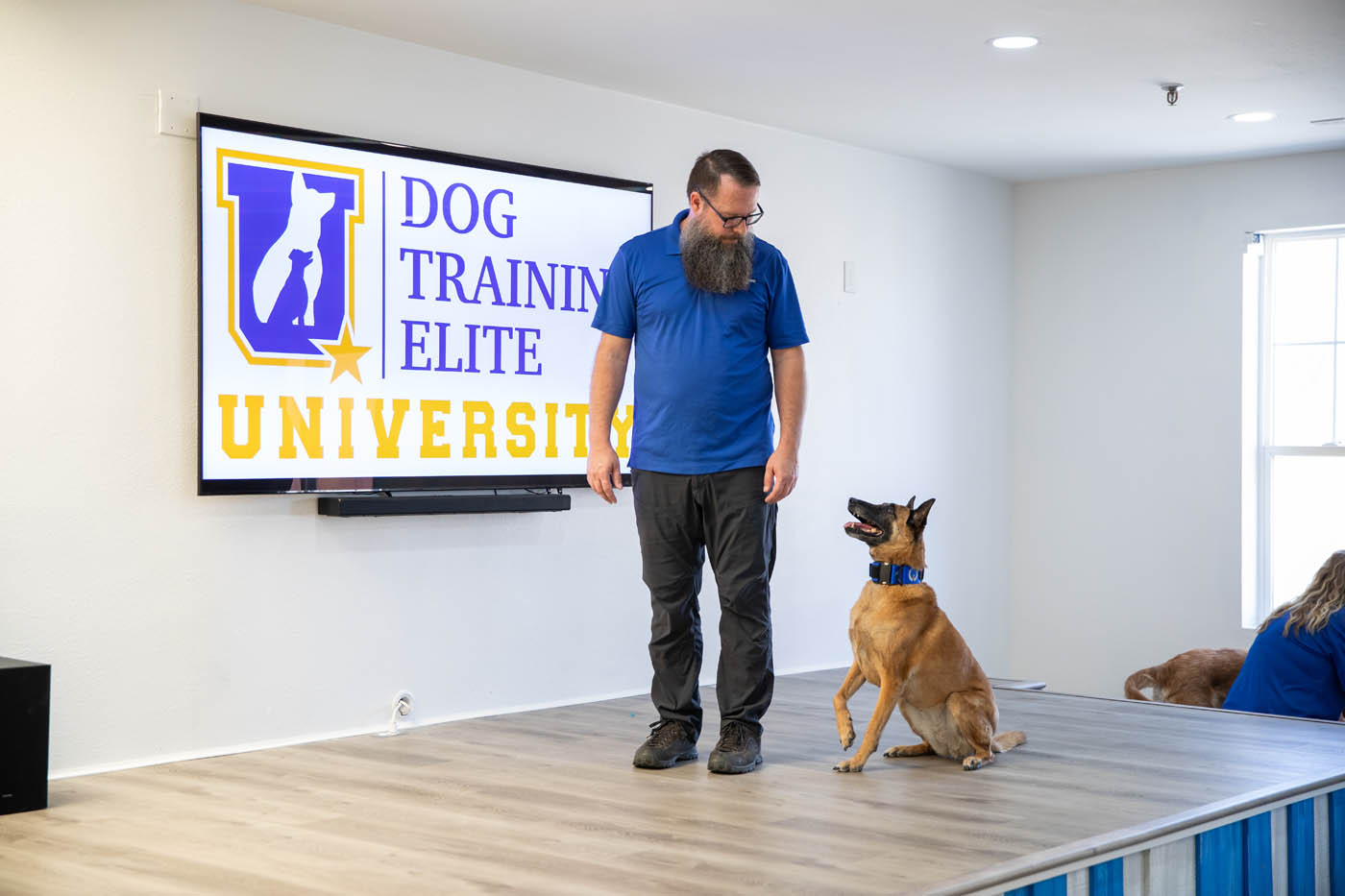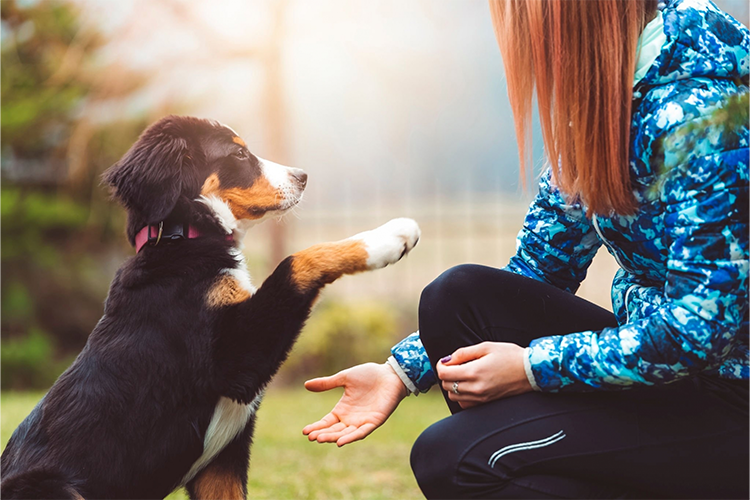Discover Top Tips for Dog Training Charlotte NC That Really Job
Wiki Article
Unlock Your Dog's Potential: Proven Canine Training Techniques for Success
Effective dog training is a nuanced procedure that hinges on understanding canine behavior and employing medically backed strategies. By including favorable support, developing clear commands, and prioritizing socialization, dog owners can grow an effective connection with their family pets.Understanding Pet Dog Habits
Understanding canine actions is essential for effective training and fostering a positive partnership in between canines and their proprietors. An extensive understanding of canine body movement, articulations, and social interactions is important for identifying their needs and feelings. Canines communicate mostly via non-verbal hints; as an example, a wagging tail might indicate excitement, while pinned ears can indicate concern or submission.
In addition, ecological variables play a considerable duty fit a canine's actions. Changes in regular, new environments, or the existence of unfamiliar people can bring about stress and anxiety or anxiety in dogs. Identifying these triggers allows owners to reduce negative reactions and establish appropriate training strategies.
Ultimately, a deep understanding of dog actions lays the foundation for successful training approaches, enhancing both actions and the total bond between the dog and its owner. dog training near me. This expertise is important for cultivating a well-adjusted, pleased canine buddy
Positive Support Methods
Effective training depends greatly on favorable reinforcement strategies, which have been revealed to produce substantial cause shaping desired habits in dogs. This technique entails awarding a canine for showing particular actions, thus boosting the chance that these actions will certainly be repeated. Incentives can take different kinds, including deals with, appreciation, toys, or play, depending upon what motivates the private pet dog.
It is necessary to gradually phase out benefits as the pet dog discovers the actions, transitioning to intermittent support. This strategy maintains the actions over time while preventing dependency on constant rewards. By concentrating on favorable reinforcement, fitness instructors can grow a trusting relationship with their canines, promoting a participating and healthy and balanced training environment that boosts total obedience and performance.
Developing Consistent Commands
A basic facet of effective pet training is the establishment of constant commands. Uniformity in commands is critical for reliable communication between the pet and the trainer. When commands are consistent, canines discover to link particular words with preferred habits, which speeds up the training procedure and enhances understanding.To develop regular commands, it is crucial that all family participants utilize the same terms and gestures. For instance, if a single person utilizes "rest" while one more states "rest down," it can produce confusion for the canine. Select clear, unique words for commands and make sure every person associated with the pet dog's training sticks to these selections.
In addition, repetition is vital. Strengthen commands via frequent method, making sure that the dog obtains adequate possibilities to react correctly. When a canine effectively adheres to a command, immediate favorable support dog training charlotte needs to adhere to. This might be in the kind of deals with, appreciation, or play, solidifying the connection in between the command and the action.
Finally, be patient. Developing consistent commands requires time and initiative. With commitment and clearness, you will help your canine establish a solid understanding of expectations, eventually resulting in a mannerly companion.
Socializing and Direct Exposure
Socializing a canine is crucial for cultivating a well-adjusted and confident companion. This process entails exposing your pet to a variety of atmospheres, individuals, and various other animals to develop their social abilities and versatility. Early socialization, ideally in between the ages of 3 to fourteen weeks, is critical, as it lays the groundwork for a dog's future habits.
During socializing, purpose to provide positive experiences in various setups, such as parks, active streets, and homes with various other pet dogs. Present your dog to various stimulations, including audios, sights, and scents, making sure that each encounter is gratifying. This direct exposure helps minimize concern and anxiousness, paving the way for an extra resilient dog.
Engaging in controlled team play sessions with other pets can likewise boost social abilities, educating your pet dog appropriate communications and borders. Focusing on socialization will substantially contribute to your dog's general joy and behavior throughout their life.
Overcoming Common Educating Obstacles

Canines might struggle to focus in active or unfamiliar setups. Progressively desensitize your pet dog to diversions by beginning training in a peaceful environment and gradually presenting even more stimuli as they end up being competent.
In addition, behavior issues like leaping or extreme barking can become irritating. Address these by teaching different actions, such as resting steadly when greeting guests. Uniformity and patience are critical; strengthen wanted behaviors regularly and stay clear of abuse, which can lead to confusion.
Finally, recognize that each pet dog is distinct, and training timelines may vary. Tailor your approach to your dog's individual demands, and look for specialist support if required. With perseverance and the right strategies, overcoming these challenges can result in a trained, pleased canine companion.
Verdict
In final thought, unlocking a canine's potential demands an extensive technique that integrates an understanding of canine habits, the application of favorable reinforcement techniques, and the establishment of regular commands. Early socializing and exposure to varied settings additionally enhance a canine's flexibility and confidence. By addressing typical training obstacles with tailored methods and patience, a participating and harmonious relationship between dog and handler can be cultivated, ultimately resulting in a well-behaved companion with the ability of flourishing in various scenarios.Efficient pet training is a nuanced process that hinges on understanding canine behavior and utilizing medically backed approaches.Understanding dog habits is necessary for efficient training and cultivating a positive connection between dogs and their proprietors.Effective training relies greatly on favorable support strategies, which have actually been shown to produce substantial results in forming wanted actions in canines. When commands are uniform, dogs learn to associate particular words with wanted behaviors, which increases the training process and improves understanding.
In final thought, opening a pet's potential demands a comprehensive method that includes an understanding of canine behavior, the application of favorable support techniques, and the establishment of consistent commands.
Report this wiki page